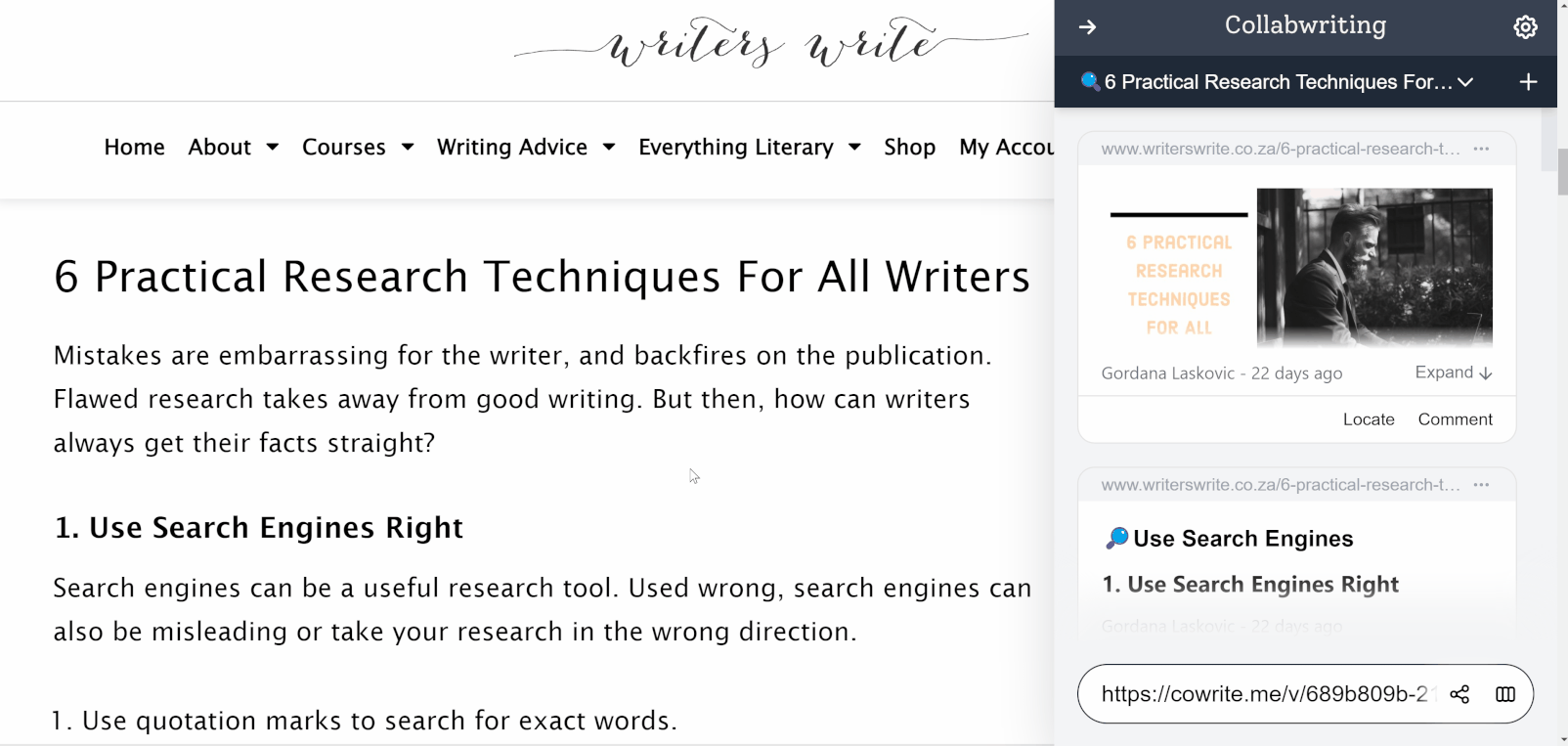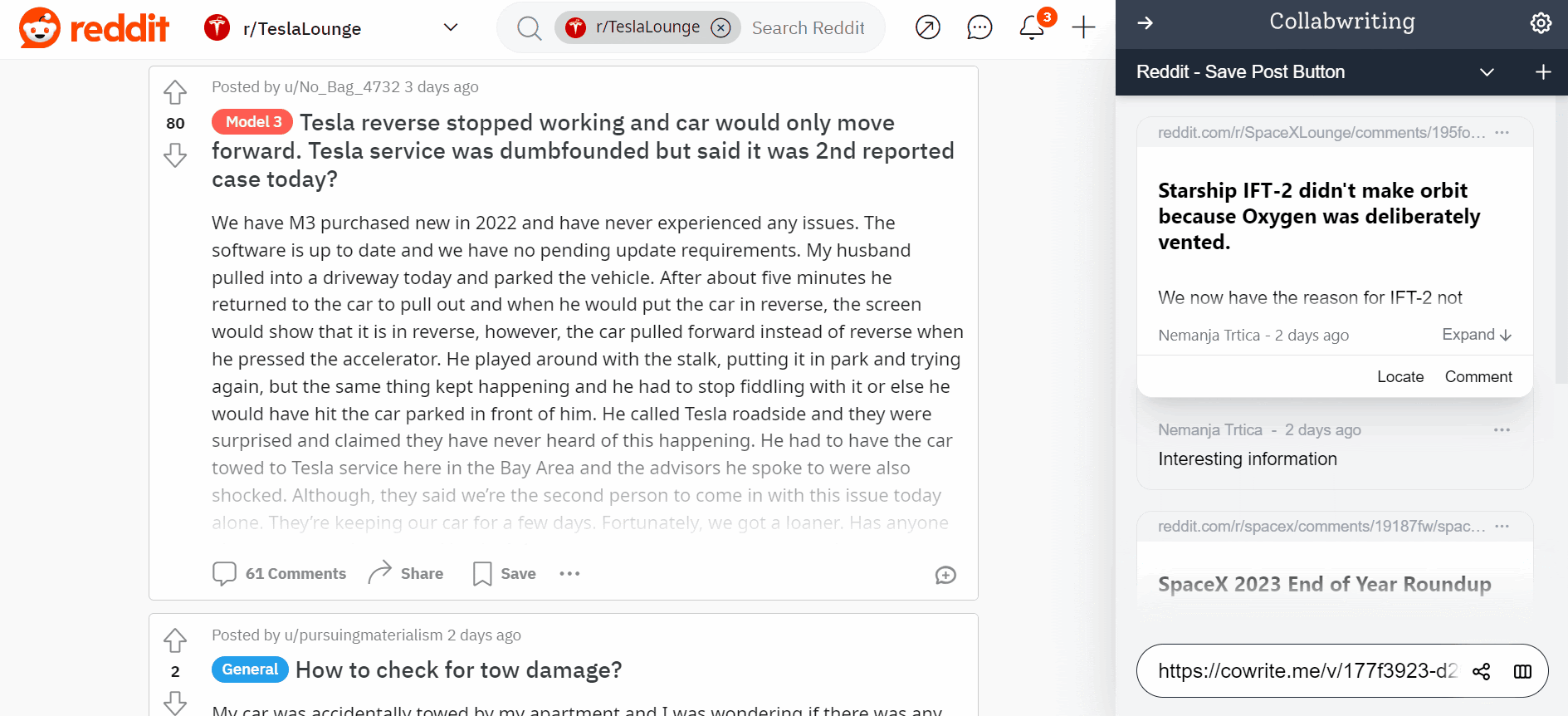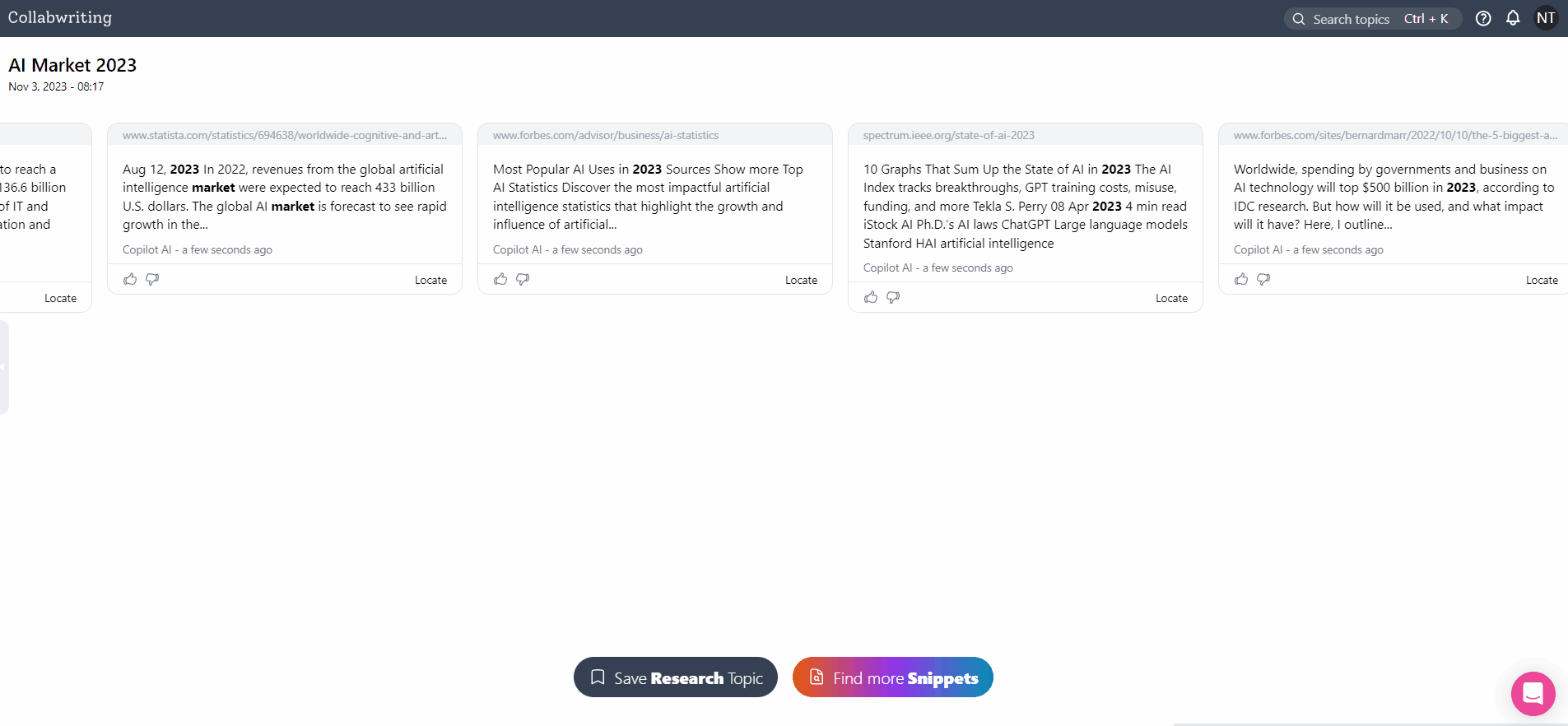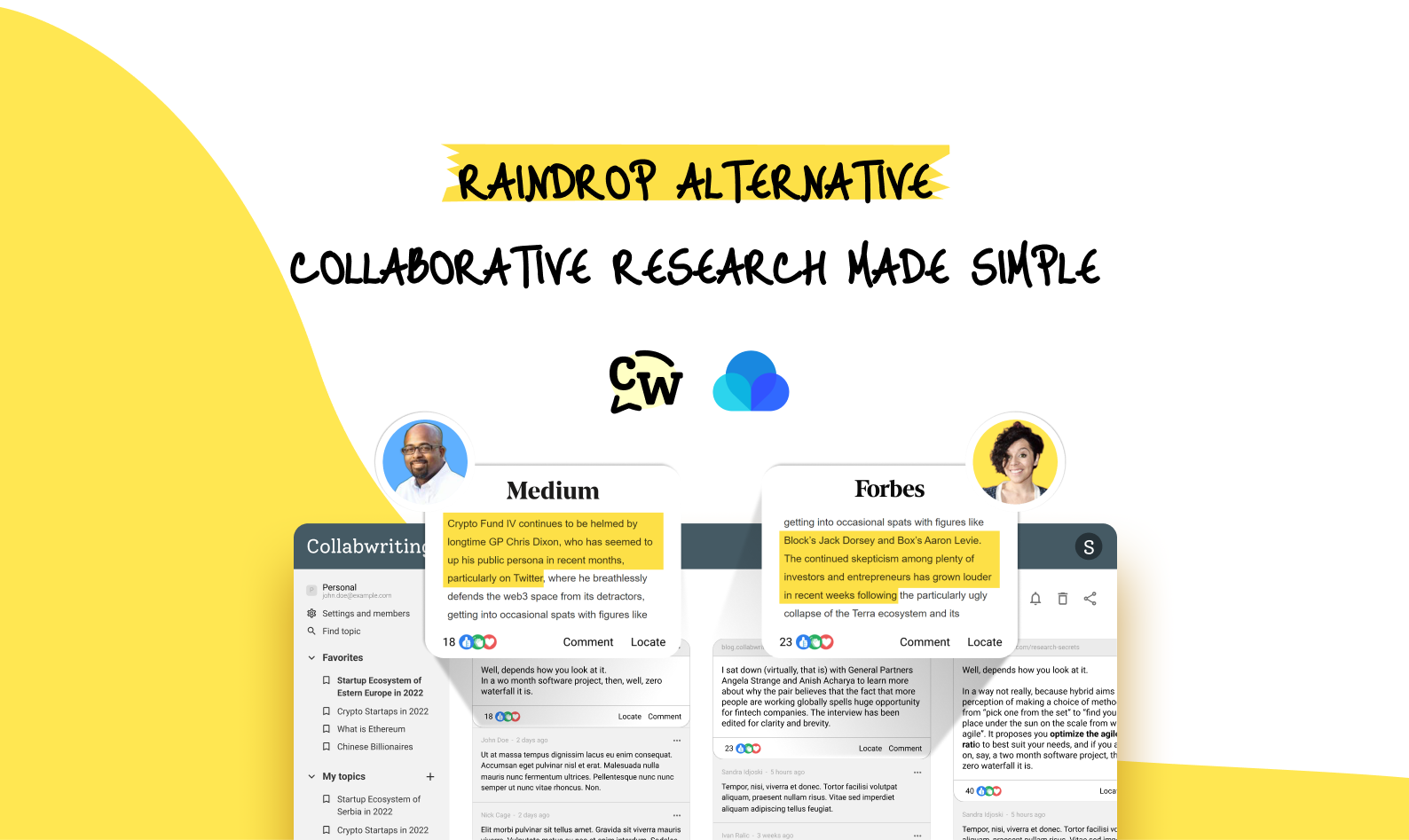Everyone's talking about content marketing, but not every article or blog is trustworthy. Your audience wants content they can rely on. That's where content credibility comes in.
To establish credibility, you need to understand your audience, use reliable sources, and present information backed by solid research.
This guide shows you how to establish online credibility through content research that builds trust, authority, and engagement.
Why Content Credibility Matters In 2025
Establishing credibility in content certainly is not an easy task.
With information overload and AI-generated content everywhere, audiences are becoming increasingly selective; they only trust sources that are accurate, transparent, and authoritative.
Credible content is the foundation for building strong relationships with customers, partners, and stakeholders.
When people perceive you as trustworthy, they are more likely to value your insights, follow your recommendations, and return for future guidance. This trust can translate into more sales, stronger partnerships, and greater recognition in your industry.
Beyond business outcomes, thought leadership is key. Publishing insightful, research-backed content positions you as an expert in your field.
In 2025, establishing credibility means being consistent, transparent, and clear in both your research and communication, showing your audience that you’re a reliable voice in a noisy digital landscape.
• They are more likely to follow your recommendations.
• Your brand gains authority in your industry.
• Engagement and loyalty increase.
• Search engines favor your content, boosting SEO.
The Benefits of Credible Research - Gain Trust and Authority
When you’re looking for content ideas, inspiration can come from many places. Even if you have a general topic in mind but aren’t sure where to start, content research is the key.
It doesn’t just help you generate ideas - it ensures every piece of content you create is well-informed, credible, and aligned with your marketing goals.
Effective content research helps you produce material that builds trust and authority in your industry. When your audience sees your content as reliable, they’re more likely to view you as a go-to source, and that trust often translates into stronger engagement, loyalty, and more conversions.
7 Effective Techniques to Boost Your Content Credibility
1) Cross-reference multiple sources
Cross-referencing is the first step in verifying information. Relying solely on one source may lead to biased or incomplete perspectives.
This involves checking multiple sources and comparing the information presented to identify inconsistencies or differences. If multiple reliable sources confirm the information, credibility increases.
Additionally, cross-referencing allows us to gain different perspectives on a topic, enabling a more holistic understanding.
2) Cite experts and interviews
Another effective way to verify information is by seeking out expert interviews and citations. When researching a specific topic, look for articles or publications that cite credible experts in the field. Expert opinions can lend credibility and provide valuable insights.
Reach out to subject-matter experts directly, if possible, to clarify any doubts or obtain additional information.
3) Evaluate website domains
The domain of a website can provide valuable insights into its credibility. Look for domains that represent established institutions, organizations, or trustworthy sources.
Government websites, academic institutions, and reputable news organizations are examples of reliable domain sources.
On the other hand, unfamiliar or obscure domain extensions can be a warning sign. Websites with domain extensions that mimic well-known sources but have slight variations should be approached with caution.
4) Back Up Your Content
When you're suggesting something to your audience, back it up with examples that back your point. Share experiences from working with clients or mention relevant case studies.
5) Understand Your Audience
Knowing your audience goes beyond basic demographics.
Pay attention to their goals, pain points, frustrations, and interests. When you truly understand what they care about, you can tailor your content to address their needs and questions.
This not only makes your content more relevant but also builds trust, showing your audience that you "get them" and are a reliable source of information.
6) Analyze Competitors
Keeping an eye on competitors isn’t about copying their content. It’s about learning what works in your niche.
Study top-performing articles, videos, or social posts to understand which topics resonate, what formats engage the audience, and where gaps exist.
By combining these insights with your unique perspective, you can create authoritative, original content that stands out and builds your credibility.
7) Use Collabwriting for centralized research
Collabwriting makes content research and collaboration effortless.
It allows you to gather all your sources in one place, highlight key points, save quotes, and add notes. You can collaborate with your team or clients in real time, ensuring that every insight is accurate, contextualized, and easy to reference.
With all your research organized and shareable, your content becomes not only well-researched but also credible and reliable, helping you establish authority in your field.

How to Conduct Content Research Effectively to Establish Credibility
Conduct online research with Google
- Use quotation marks to search for exact words.
- Prefer authoritative sources above informal results.
- Always verify one source with another, even if #1 ‘seems’ correct.
- Use advanced features for a refined search (for example, specific dates or domains).
- Autocomplete feature: When you start typing, Google suggests queries. These can be great content titles. Just tweak them a bit to fit your goals.
- "People also ask" section: Check this for more specific, question-based searches. The suggestions here can spark content ideas aligned with your objectives.
- "Related searches" section: Find related searches at the bottom of the results. Handpick ones relevant to your topic for content inspiration.
- Search results: Check the actual results. Look at the top 10 and see common themes. Identify these to boost your chances of ranking higher.

Perform keyword research for SEO and analyze competitors
Understanding what your audience searches for helps you answer their questions and build authority in your niche.
Here are two simple ways to get to know your audience better:
- Check out your competitors
See what your competitors are doing well and not so well. Understand how they're reaching the shared audience and what resonates or doesn't with them.
- Keep an eye on feedback and engagement
Pay attention to what your audience is saying. Collect feedback through surveys and online forms. Also, monitor comments and engagements on your website, blog, social media, and customer support. This gives valuable insights into what your audience cares about.
Monitor online communities (LinkedIn, Reddit, Quora, X, etc)
Reddit, Quora, and LinkedIn reveal what people are curious about, highlighting pain points and trending topics.
Take a quick scroll through Reddit or LinkedIn, for example. What do you see?
People seeking answers! 👀
By doing this, you get a unique glimpse into what challenges your target audience is facing.
And hey, don't forget about Quora - it's another helpful place to explore.
→ 73% have Reddit threads ranking for their brand names on Google but - 63% of those threads have negative sentiment
→ Google's AI summaries often pull from Reddit threads, which can directly affect brand reputation
→ Around 88% of businesses haven't tried Reddit marketing, mostly because they don't really understand how the platform works (about 48% said this)
Read More 👉🏼 Reddit Insights - What You Need to Know

How Collabwriting Helps You Establish Online Credibility
To make killer content, it's not just about understanding content research or applying the tips we mentioned. It's about going above and beyond.
Take it a step further.
Try Collabwriting
It allows you to gather all your online sources in one place. Just highlight, save, and collaborate with anyone on any content you find online.
Key features:
- A centralized place for all collected sources
- Save any quotes, ideas, and references
- Create a sharable and searchable system
- Receive feedback and collaborate with your team and clients
Streamlined research process
- Use topics, clusters, and hashtags to create a structure
- Share your research with anyone and start collaborating
- Or export your notes to create blogs and white papers
Additionally, there's an AI Research Copilot that saves you hours of googling. It collects data, ideas, and references, improving with each search based on your feedback.

Final Thoughts
The right approach to content research can make all the difference.
Using tools like Collabwriting to centralize sources, annotate key points, and collaborate ensures your content is always trustworthy. By doing this, you establish online credibility, improve engagement, and strengthen your position as a thought leader.
Accurate research, expert insights, and structured collaboration: that’s the recipe for content your audience can trust.
FAQ 🧐
What is content credibility?
Content credibility is the trustworthiness of your information. It’s key to gaining authority and engaging your audience.
How do I establish credibility in SEO?
Use reliable sources, cite experts, cross-reference information, and align content with what your audience searches for.
Why is the credibility of research important?
Credible research ensures your content is accurate, trusted by readers, and valued by search engines.
How can I establish online credibility?
Consistently produce accurate, well-researched content. Collaborate with your team using tools like Collabwriting to centralize research and improve reliability.





![The Best Tool for Collaborative Research in Content Marketing Teams [2026]](/content/images/2025/12/image--5-.png)

![5 Tools Marketers Use to Organize Research - Compared [2026]](/content/images/2025/11/cover-4-1.png)

![Build Credibility in Research: Smart Way to Verify Information and Track Sources Easily [2025]](/content/images/2025/10/covers-for-blog--7--1.png)

![How Marketers Can Turn LinkedIn Content into Collaborative Research [2025]](/content/images/2025/10/covers-for-blog--8-.png)
![Best Readwise Alternative for Personal & Team Research [2026]](/content/images/2025/09/Frame-814--3-.png)

